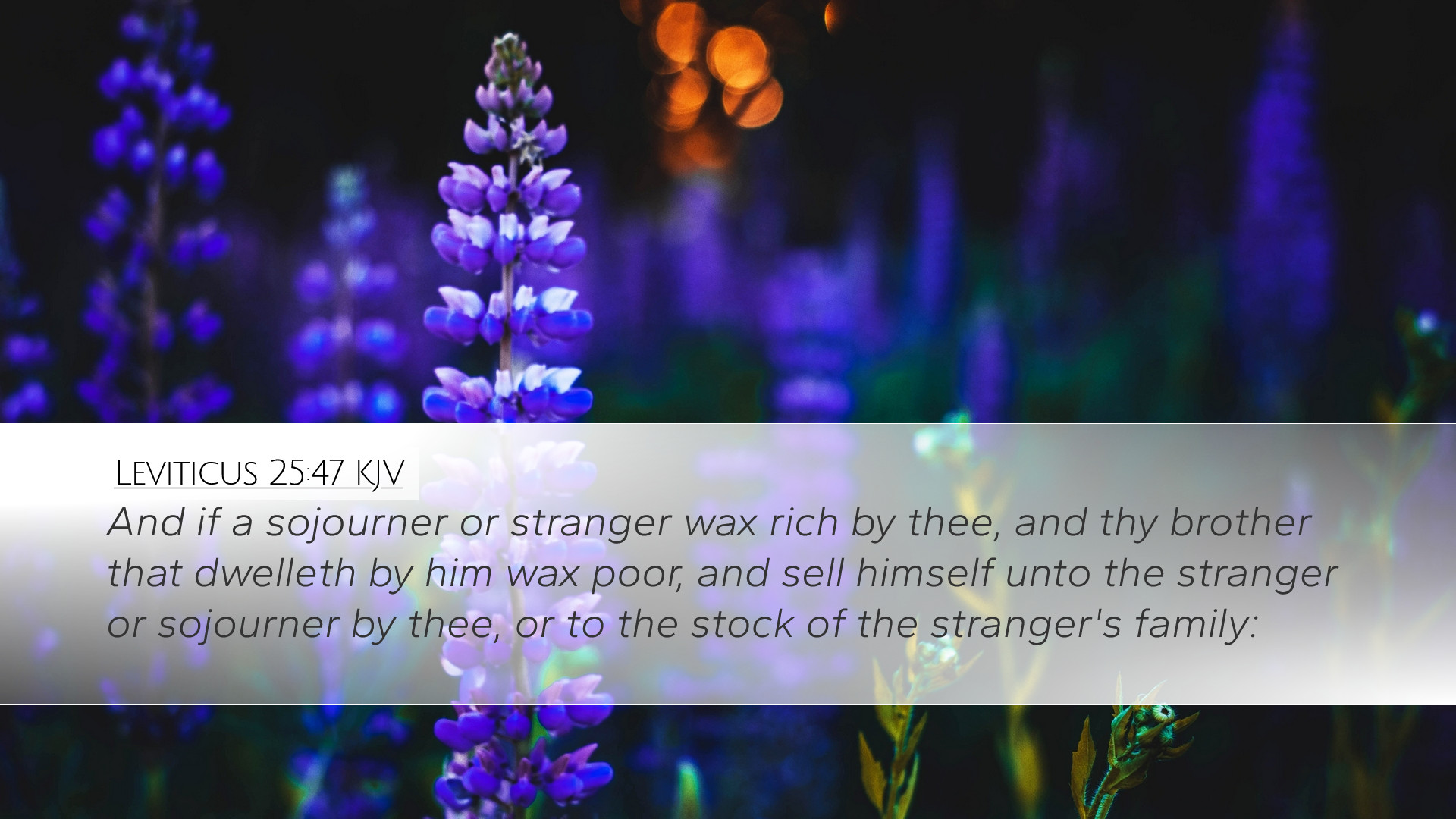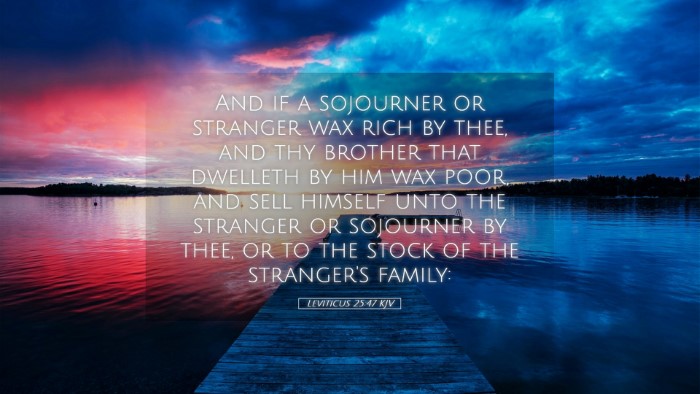Commentary on Leviticus 25:47
Leviticus 25:47 states:
“And if a sojourner or stranger wax rich by thee, and thy brother that dwelleth by him wax poor, and sell himself unto the stranger or sojourner by thee, or to the stock of the stranger's family:”
Introduction
This verse occurs within the broader context of the Jubilee laws, which prescribe the means by which the Israelites could maintain ownership of their land and ensure the preservation of family heritage. The laws regarding servitude and indebtedness are critical components of social justice and economic equity in the community of Israel. In this commentary, we will explore the insights from notable public domain theologians such as Matthew Henry, Albert Barnes, and Adam Clarke regarding this verse.
Exegesis and Contextual Analysis
According to Matthew Henry's commentary, Leviticus 25 deals extensively with laws regarding the Year of Jubilee, including the restoration of property and the release of servants. This specific passage presents a scenario where an Israelite, experiencing economic hardship, finds himself compelled to sell his labor to a foreigner or sojourner. Henry notes:
- Social Structure: The passage highlights the vulnerability of the Israelites in maintaining their economic independence.
- Community Responsibility: The dignity of the Israelite remains significant; the selling of oneself indicates a drastic measure, urging stronger communal support mechanisms.
- Wealth Disparity: The contrast between the rich sojourner and the poor Israelite points to the ongoing social and economic inequalities that exist within the larger society.
Theological Implications
Albert Barnes emphasizes that the cultural and legal framework of Israel was designed to provide protection for the poor and manageable conditions for debt repayment. He notes the following points:
- Divine Justice: The Law explicitly addresses the plight of the poor, echoing God's concern for the vulnerable.
- Redemption: While servitude exists due to necessity, the Year of Jubilee represents the potential for redemption and the restoration of rights.
- Inclusivity: This verse subtly foreshadows the inclusion of non-Israelites in the economy of God's justice.
Practical Applications for the Church
Adam Clarke interprets this passage in light of mercy and compassion. The church today can draw several lessons from Leviticus 25:47:
- Care for the Poor: Churches are called to assist those who find themselves economically disadvantaged, ensuring that no one is sold into servitude under oppressive circumstances.
- Community as Family: Just as the Israelites were to regard one another as brothers, Christians ought to foster an environment of kinship and support.
- Redemptive Action: Engaging in social justice work reflects the redemptive nature of the faith: Christians should actively seek to restore dignity and preserve familial heritage.
Conclusion
Leviticus 25:47 provides a critical insight into God’s desire for justice and mercy within the community of Israel. Public domain commentators illuminate the multifaceted implications of this verse, from social structure to theological reflections on redemption and community responsibility. For pastors, students, and theologians, this passage is not only a historical legal code but remains a rich source of practical and spiritual insight relevant to contemporary issues of poverty, justice, and community care.


